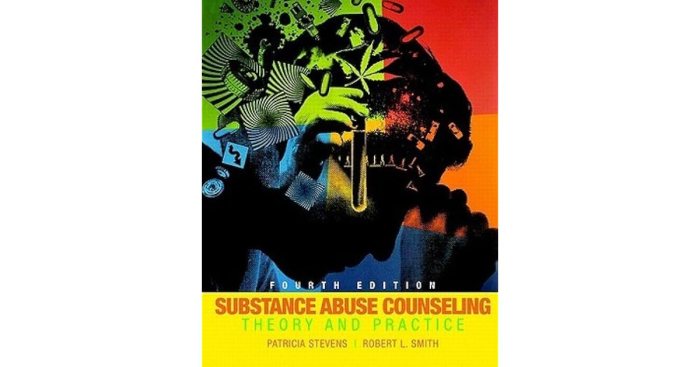Substance use counseling theory and practice 6th edition pdf free – Delve into the world of substance use counseling with the latest edition of the seminal text, Substance Use Counseling Theory and Practice: 6th Edition PDF Free. This comprehensive resource equips you with the knowledge and skills to effectively guide individuals struggling with substance use disorders towards recovery.
Through a comprehensive exploration of theoretical foundations, ethical considerations, assessment techniques, treatment planning, and relapse prevention strategies, this book provides a holistic understanding of substance use counseling. Engage with real-world case studies and evidence-based practices to enhance your understanding and prepare you for the challenges of the field.
Introduction to Substance Use Counseling Theory and Practice 6th Edition

The 6th edition of Substance Use Counseling Theory and Practice is a comprehensive resource for substance use counselors and other professionals working in the field of addiction. The book provides an overview of the latest research and best practices in substance use counseling, with a focus on evidence-based interventions.
This edition includes new chapters on topics such as cultural considerations, relapse prevention, and recovery management.
This book is an essential resource for anyone working in the field of substance use counseling. It provides a comprehensive overview of the latest research and best practices, and it is written in a clear and accessible style.
Theoretical Foundations of Substance Use Counseling: Substance Use Counseling Theory And Practice 6th Edition Pdf Free

There are a number of different theoretical approaches to substance use counseling, each with its own strengths and weaknesses. Some of the most common approaches include:
- Motivational interviewingis a counseling approach that focuses on helping clients to explore their own motivation for change. Motivational interviewing is based on the principles of empathy, acceptance, and autonomy, and it has been shown to be effective in helping clients to reduce their substance use.
- Cognitive-behavioral therapy (CBT)is a type of counseling that focuses on helping clients to change their thoughts and behaviors. CBT is based on the premise that our thoughts, feelings, and behaviors are all interconnected, and that by changing one, we can change the others.
CBT has been shown to be effective in treating a variety of mental health problems, including substance use disorders.
- Person-centered therapyis a counseling approach that focuses on the client’s own experiences and feelings. Person-centered therapy is based on the belief that clients are capable of self-growth and change, and that the therapist’s role is to provide a supportive environment in which clients can explore their own issues.
The best approach to substance use counseling will vary depending on the individual client. However, all of the approaches listed above have been shown to be effective in helping clients to reduce their substance use and improve their lives.
Ethical and Legal Considerations in Substance Use Counseling
Substance use counselors are bound by a number of ethical and legal considerations in their practice. These include:
- Confidentiality: Substance use counselors must keep all client information confidential. This includes information about the client’s substance use, mental health, and personal life.
- Informed consent: Substance use counselors must obtain informed consent from clients before providing any treatment. Informed consent means that the client must be fully informed of the risks and benefits of treatment, and that they must agree to participate in treatment voluntarily.
- Dual relationships: Substance use counselors must avoid dual relationships with clients. This means that they cannot provide treatment to clients with whom they have a personal or financial relationship.
- Impaired counselors: Substance use counselors must not provide treatment while under the influence of alcohol or drugs. They must also seek help if they are experiencing any personal or professional problems that could impair their ability to provide effective treatment.
Substance use counselors who violate these ethical and legal considerations may be subject to disciplinary action, including loss of their license to practice.
Quick FAQs
What are the key theoretical approaches used in substance use counseling?
Motivational interviewing, cognitive-behavioral therapy, and person-centered therapy are widely used theoretical approaches in substance use counseling.
How is relapse prevention addressed in this book?
The book emphasizes the importance of relapse prevention planning and support groups. It discusses strategies to identify risk factors and develop personalized relapse prevention plans.
What is the role of cultural sensitivity in substance use counseling?
The book highlights the significance of cultural sensitivity and competence in counseling. It provides specific strategies for working with clients from diverse cultural backgrounds.